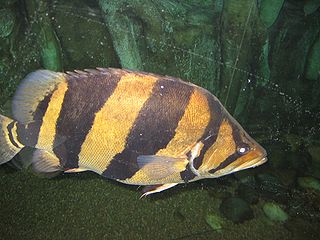
Clodius is an alternate form of the Roman nomen Claudius, a patrician gens that was traditionally regarded as Sabine in origin. The alternation of o and au is characteristic of the Sabine dialect. The feminine form is Clodia.

Clodia, nicknamed Quadrantaria, Nola, Medea Palatina by Cicero, and occasionally referred to in scholarship as Clodia Metelli, was one of three known daughters of the ancient Roman patrician Appius Claudius Pulcher.

The gens Claudia, sometimes written Clodia, was one of the most prominent patrician houses at ancient Rome. The gens traced its origin to the earliest days of the Roman Republic. The first of the Claudii to obtain the consulship was Appius Claudius Sabinus Regillensis, in 495 BC, and from that time its members frequently held the highest offices of the state, both under the Republic and in imperial times.
Publius Claudius Pulcher was a Roman politician.
The naval Battle of Drepana took place in 249 BC during the First Punic War near Drepana in western Sicily, between a Carthaginian fleet under Adherbal and a Roman fleet commanded by Publius Claudius Pulcher.

Pro Caelio is a speech given on 4 April 56 BC, by the famed Roman orator Marcus Tullius Cicero in defence of Marcus Caelius Rufus, who had once been Cicero's pupil but more recently had become estranged from him. Cicero's reasons for defending Caelius are uncertain, but one motive may have been his hatred of Publius Clodius Pulcher, who two years earlier had passed a law which had forced Cicero into exile, and whose sister Cicero attacks mercilessly in this speech.
Claudia Pulchra was the name of several women of Roman gens of Claudii during the 1st century BC and 1st century AD. The Latin pulchra is the root of the English word pulchritude.
Appius Claudius Pulcher was a Roman general and politician of the 3rd century BC, active in the Second Punic War.
Appius Claudius Pulcher was a Roman noble, general and politician of the 1st century BC. He was the father of a number of renowned Romans, most notable: the infamous Clodius and Clodia.
Marcus Livius Drusus Claudianus was a senator and praetor of the Roman Republic. He was born with the name Appius Claudius Pulcher, into the patrician family of the Claudii Pulchri but adopted by a Livii Drusi as a small child. His daughter Livia Drusilla became the wife of the first Roman Emperor Augustus, and he was a direct ancestor of the Julio-Claudian emperors Tiberius, Caligula, Claudius and Nero.

Pelvicachromis pulcher is a freshwater fish of the cichlid family, endemic to Nigeria and Cameroon. It is popular amongst aquarium hobbyists, and is most commonly sold under the name kribensis, although it has other common names, including various derivatives and color morphs of the kribensis: krib, common krib, red krib, super-red krib and rainbow krib, along with rainbow cichlid and purple cichlid.

The blue acara is a colorful freshwater fish in the cichlid family. This fish can be found in various freshwater habitats, ranging from standing water to flowing streams, in Venezuela and Trinidad. They can reach lengths of 16 cm (6.3 in). The scientific species name is indicative to its looks; pulcher meaning "beautiful" in Latin. The blue acara is a common cichlid sold in many aquarium stores, and is sometimes confused with the larger green terror.

The Siamese tigerfish, also known as the Siamese tiger perch, is a species of ray-finned fish belonging to the family Lobotidae, the tripletails and tiger perches. This fish is endemic to Indochina and is assessed as Critically Endangered by the IUCN.
Appius is a Latin praenomen, or personal name, usually abbreviated Ap. or sometimes App., and best known as a result of its extensive use by the patrician gens Claudia. The feminine form is Appia. The praenomen also gave rise to the patronymic gens Appia.

Gesomyrmex pulcher is an extinct species of ant in the subfamily Formicinae known from an Eocene fossil found in Europe. G. pulcher is one of only eight species in the ant genus Gesomyrmex to have been described from fossils found in Europe.

Rumex pulcher is a species of flowering plant in the knotweed family known by the common name fiddle dock. It is native to Eurasia and North Africa and it can be found elsewhere, including parts of North America, as an introduced species and a roadside weed. It is quite variable in appearance, and some authorities divide it into several subspecies that are more or less distinguishable. In general, it is a perennial herb producing a slender, erect stem from a thick taproot, approaching 70 centimeters in maximum height. The top of the plant may bend, especially as the fruit develops. The leaves are up to 10 or 15 centimeters long and variable in shape, though often oblong with a narrow middle in the rough shape of a fiddle. The inflorescence is made up of many branches, each an interrupted series of clusters of flowers with up to 20 in each cluster, each flower hanging from a pedicel. The flower has usually six tepals, the inner three of which are edged with teeth and have tubercles at their centers.
Appius Claudius Pulcher was a Roman politician. An early supporter of Augustus, he was elected consul in 38 BC.

The Lunsford-Pulcher Archeological Site is a prehistoric archaeological site in rural Monroe and St. Clair counties in Illinois. The site was the location of a Middle Mississippian village which was probably a satellite community of Cahokia. Several pyramidal burial mounds are included in the site. Archaeological excavations at the site have also discovered the remains of houses and garden beds, making the site one of the few Mississippian villages at which garden beds have been found. The site has been known to European settlers since early settlement of the area in the late 18th century; despite being used for farmland, the site remains in good condition.
Publius Claudius Pulcher may refer to:










